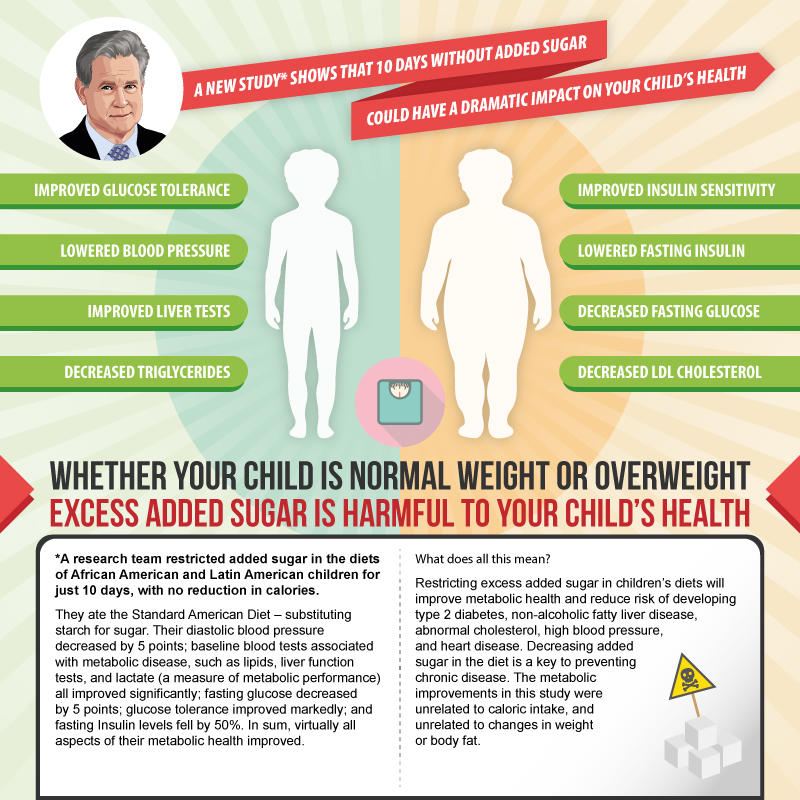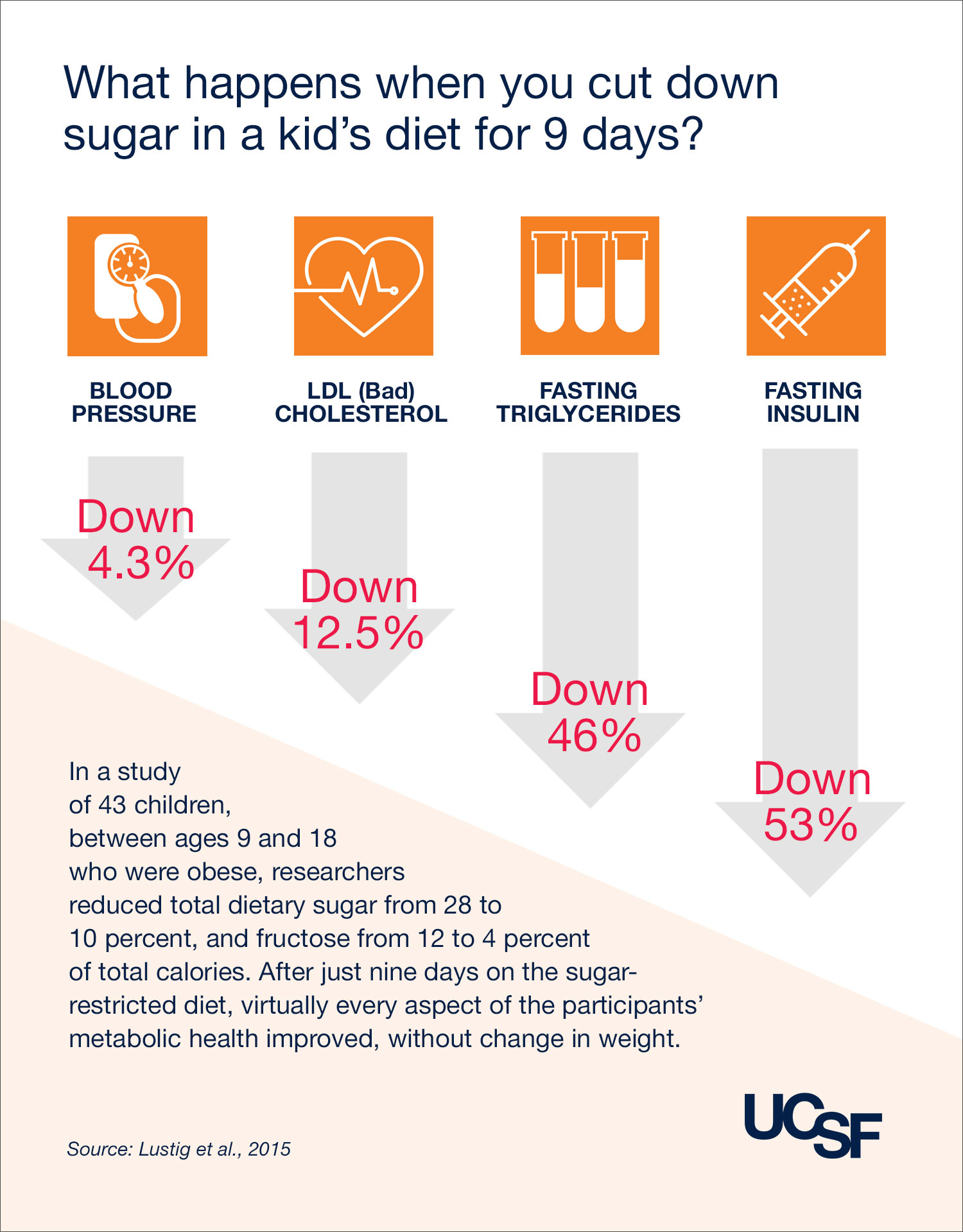
Fructose Restriction
A fructose restriction study conducted by Dr. Robert Lustig showed that 10 days without added sugar could have a dramatic impact on a child’s health.
- Improved glucose tolerance
- Lowered blood glucose
- Improved liver tests
- Decreased triglycerides
- Improved insulin sensitivity
- Lowered fasting insulin
- Decreased fasting glucose
- Decreased LDL cholesterol
Whether a child is normal weight or overweight, excess added sugar is harmful to your child’s health.
A research team restricted added sugar in the diets of African American and Latin American children for just 10 days, with no reduction in calories.
They ate the Standard American Diet – substituting starch for sugar. Their diastolic blood pressure decreased by 5 points, baseline blood tests associated with metabolic disease, such as lipids, liver function tests, and lactate (a measure of metabolic performance) all improved significantly, fasting glucose decreased by 5 points, glucose tolerance improved markedly, and fasting insulin levels fell by 50%. In sum, virtually all aspects of their metabolic health improved.
What does all this mean?
Restricting excess added sugar in children’s diets will improve metabolic health, and reduce risk of developing type 2 diabetes, non-alcoholic fatty liver disease, abnormal cholesterol, high blood pressure, and heart disease. Decreasing added sugar in the diet is a key to preventing chronic disease. The metabolic improvements in this study were unrelated to caloric intake, and unrelated to changes in weight or body fat.
Clinical Trial Overview: Metabolic Impact of Fructose Restriction in Obese Children (SUCRE)
Papers Published on this Study
- Obese Children’s Health Rapidly Improves With Sugar Reduction Unrelated to Calories
(Study Indicates That Calories Are Not Created Equal; Sugar and Fructose Are Dangerous) - Isocaloric fructose restriction and metabolic improvement in children with obesity and metabolic syndrome.
- Effects of Dietary Fructose Restriction on Liver Fat, De Novo Lipogenesis, and Insulin Kinetics in Children With Obesity
- Short-term isocaloric fructose restriction lowers apoC-III levels and yields less atherogenic lipoprotein profiles in children with obesity and metabolic syndrome.
- Isocaloric Fructose Restriction Reduces Serum D-Lactate Concentration in Children With Obesity and Metabolic Syndrome
(Study shows that a fructose metabolite in the liver, methylglyoxal (of which D–lactate is the breakdown product), correlates with changes in both de novo lipogenesis and insulin resistance when starch is substituted for sugar. Short version: SUGAR IS TOXIC! And here’s the toxin.)

